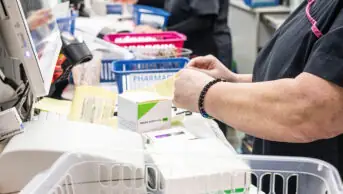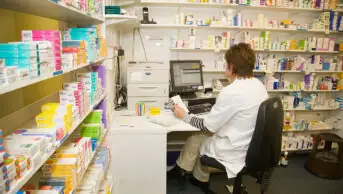During my internship with NHS England, Midlands region, I joined the chief operating officer directorate to undertake a scoping exercise on innovation within student bank programmes. The incentive behind this project was the planned elimination of Band 2 and Band 3 agency staff, highlighting the necessity of increasing the use of student banks as an alternative.
Student banks allow undergraduates to fill temporary roles within healthcare trusts, providing flexibility for services while giving students valuable and strong pipelines into substantive roles. Evidence shows high-to-substantive roles with students who participate in these banks.
To investigate current practice, I distributed a questionnaire to NHS trusts and higher education providers within the Midlands, seeking data on the prevalence of student bank programmes. I found that while nursing and medical students are routinely included in student banks, pharmacy students are often excluded. This omission is concerning given the expanding clinical role of pharmacists and the urgent need to strengthen the pharmacy workforce pipeline.
Pharmacy students could make valuable contributors to student banks, either by taking on clinical support positions, such as healthcare assistant roles, or by filling roles such as dispensers. Student participation would provide early exposure to clinical practice, enhanced confidence and develop skills that complement academic training, while also creating a more flexible workforce for the NHS, reducing reliance on agency staff and supporting recruitment into pharmacy roles at a time of significant workforce pressures. Excluding pharmacy students risks perpetuating inequity between healthcare professions and overlooks the contribution that future pharmacists can make to patient care. It also limits opportunities for students from underrepresented backgrounds, who may particularly benefit from structured, paid clinical experience.
Many trusts expressed strong interest in expanding student bank programmes, which I supported by organising a webinar with over 120 attendees to share best practice.
I urge NHS trusts and pharmacy leaders to expand student bank opportunities to include pharmacy students. Doing so would not only strengthen the workforce pipeline but also ensure that pharmacy education keeps pace with the profession’s evolving clinical responsibilities. I would also like to encourage black pharmacy students and early career pharmacists to consider applying for the 10,000 Black Interns Programme. My own experience has shown how valuable this initiative can be in providing exposure to national healthcare projects, building confidence and opening doors to future opportunities. Greater participation from pharmacy will not only support individual development but also strengthen representation and innovation within the profession.
Azizat Amodu, fourth year MPharm student, University of Manchester


